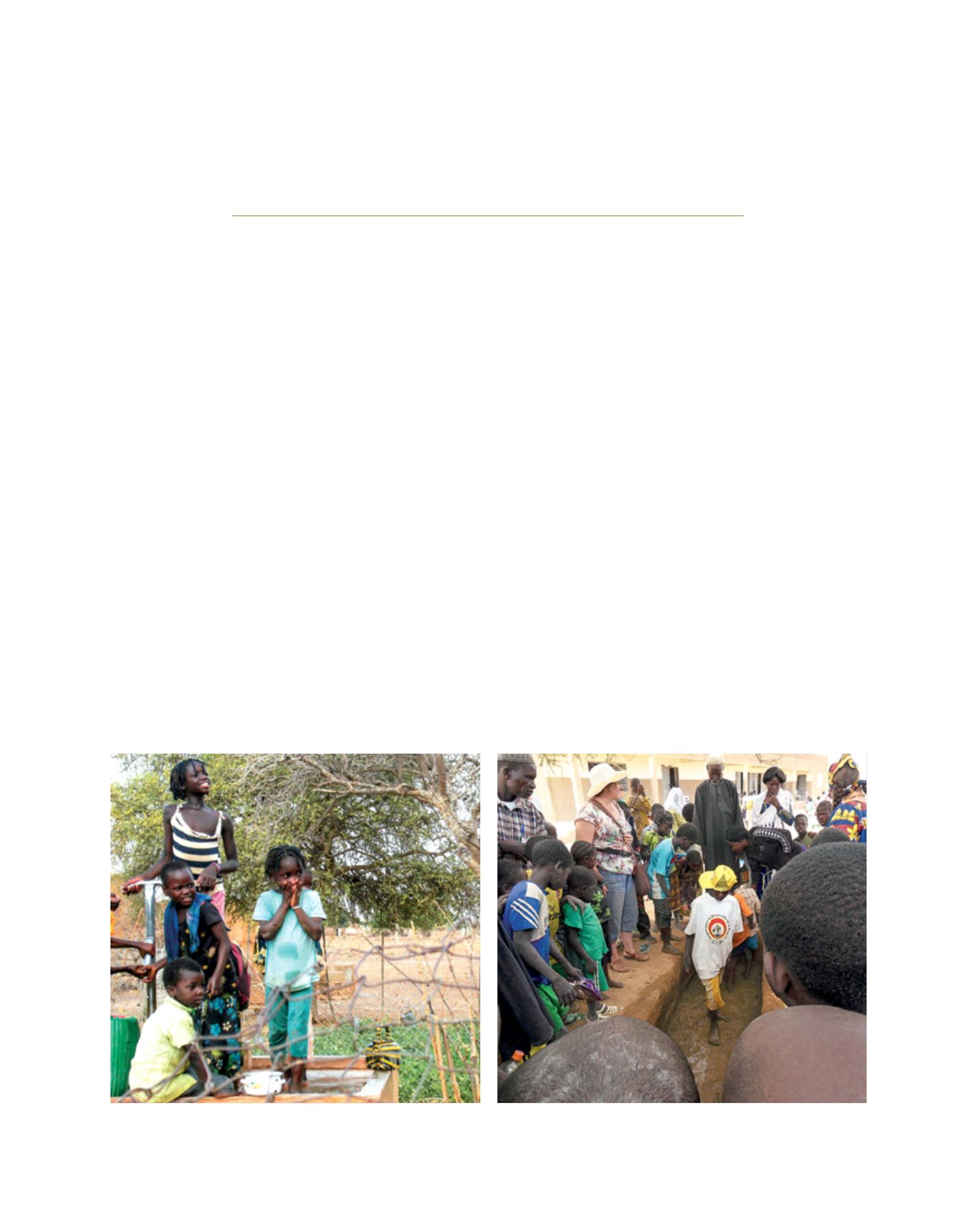

[
] 149
Restoring the soil to feed
people and fight desertification
Claire Péhi-Verny, President, Association Pour un autre monde
T
he association ‘Pour un autre monde’ (For another
world) was founded by seven people from the
academic community in Alsace, with the goal of
educating for sustainable development. Pour un autre monde
chose to target school pupils because, being educators, we
believe that what is learned at school can imprint something
in a pupil’s mind and make a more responsible adult. Living
in Alsace, a French province with water pollution problems
and a lively ‘organic network’, we focused on agroecology
for our contribution to stop desertification. We also taught
French and nearby German pupils a form of active solidar-
ity and reflection on their own energy-consuming behaviour.
The association first worked in Sri Lanka after the 2004
tsunami. Coming to Burkina Faso in 2006 was pure chance:
a Burkinabè (resident of Burkina Faso) had seen our website
and requested to partner with us. We have remained in the
country to work in depth in order to address real local needs.
Our first president discovered Africa when he flew to Burkina
Faso. He started the first project in Bobomundi with the help
of the Centre écologique Albert Schweitzer in Ouagadougou,
and signed an agreement with the Government. I discovered
Africa when I was 12 years old. I went to school and univer-
sity in Dakar and Abidjan and married in the Ivory Coast, so
taking part in a Pour un autre monde adventure in Burkina
Faso was only natural.
Soon, contacts with local teachers brought us to the Loroum
Province in the North region. We began training teachers,
pupils and volunteer parents of the first four partner schools in
Sahelian compost making, growing organic vegetables, mulch-
ing, limited watering, water harvesting, shrubbery and tree
planting. Through these endeavours we improve the daily food
rations of both the children and their families. We restore the
degraded soil, sterilized by 40 years of drought, by producing
humus and we plant local trees to combat desert growth, using
seeds from the National Forestry Seeds Centre in Ouagadougou.
The four school gardens of Hargo, Salla, Siguinonguin
and Rimassa attracted the attention of colleagues coming
for meetings at the education offices. We now work with 26
primary school partners, two secondary schools in Loroum
and one 700 km away in Sebba, in the Yagha province of the
Sahel region. Two coordinators, Appolinaire Bazié in Titao,
Loroum province and Souleymane Diabate in Sebba, follow
the projects year-round on a voluntary basis.
Pupils collect material such as cow dung, ash and poultry bones to help create natural compost, and enjoy stamping the damp clay during
watering of the trenches dug by the parents
Images: Association Pour un autre monde
L
iving
L
and
















